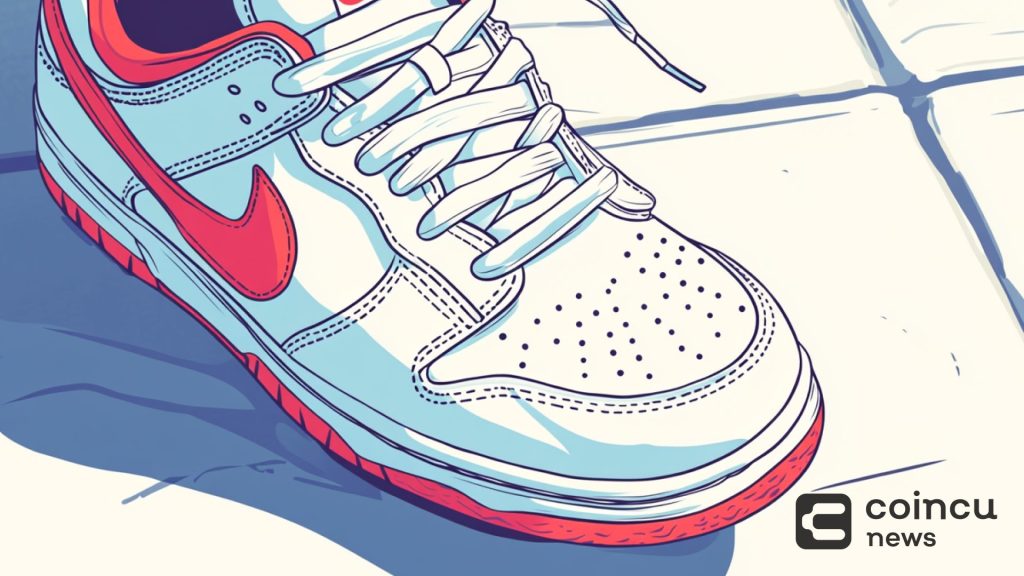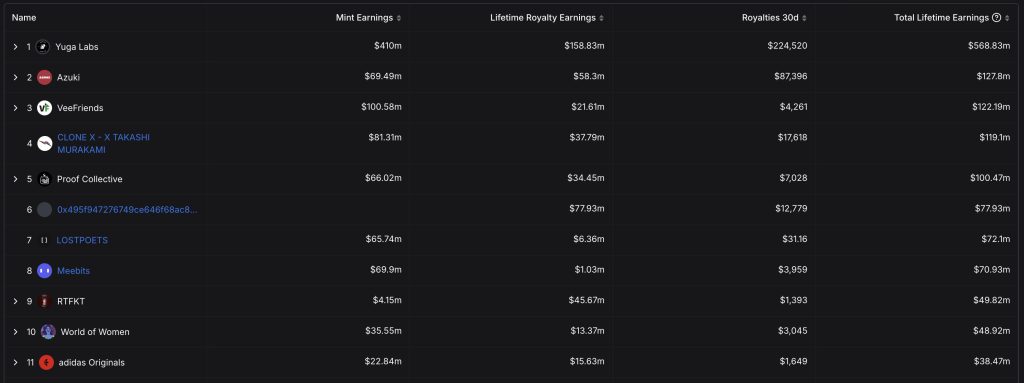Key Points:
- Nike NFT project RTFKT will cease operations by January 2025, though its Ethereum-based tokens will remain accessible.
- RTFKT plans to launch an updated website showcasing its groundbreaking contributions to NFTs and digital collectables.
RTFKT, a pioneering maker of virtual NFT sneakers, will shut down by January 2025, per an announcement on X made on Dec. 2.

Read more: Nike’s Airphoria NFT Sneaker Hunt Takes Over Fortnite
Nike NFT Project RTFKT to Shut Down by January 2025
Acquired by Nike in 2021 for an undisclosed sum, the company’s Ethereum-based tokens will remain accessible despite the shutdown.
“To honor and preserve this pioneering legacy, we will be launching an updated website that showcases the groundbreaking work that defined the RTFKT journey,” said the announcement.
The Nike NFT project was founded in 2020 and quickly rose to fame as a leader in the NFT and metaverse industries. It drew attention with major brand deals, including Nike, alongside top-tier artists like Jeff Staple, a sneaker designer, and Japanese contemporary artist Takashi Murakami.
Success attracted heavy investment, too, as the startup raised at least $8 million from backers such as Andreessen Horowitz prior to its acquisition by Nike.
RTFKT’s Rise and the Rise of Digital Collectibles
The Nike NFT project rose to prominence with an innovative concept: merging digital and physical collectables. Early successes included creating a collection on Nifty Gateway that brought in sales of $10,000 and building a community through Ethereum-based NFTs and physical products.
During its lifetime, the company banked close to $50 million in earnings, with more than $45 million from royalties, according to data from DefiLlama.

Despite this success, the NFT market has increasingly struggled. Nike’s forecast for June 2024 predicted a drop in demand for its physical sneakers, which might raise questions about wider demand for digital collectables.
| DISCLAIMER: The information on this website is provided as general market commentary and does not constitute investment advice. We encourage you to do your own research before investing. |






















